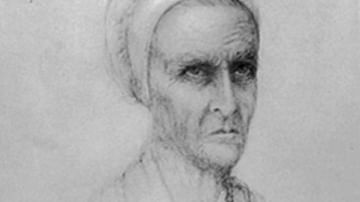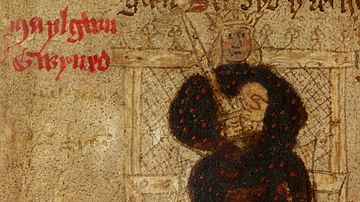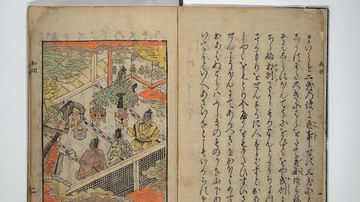Search Definitions
Browse Content (p. 69)

Definition
Marie Durand
Marie Durand (c. 1715-1776) stands apart in French Protestant history for her courage in the struggle for freedom of conscience. She was imprisoned for 38 years in the Tower of Constance at Aigues-Mortes in the south of France, liberated...

Definition
Sardis
Sardis (near modern-day Sart, Turkey) was the capital of the ancient Kingdom of Lydia founded (according to Herodotus) by the Heracleidae, the Heraclid Dynasty descended from the hero Heracles (Hercules). The city was famous in antiquity...

Definition
Xenophon
Xenophon of Athens (l. 430 to c. 354 BCE) was a contemporary of Plato and a fellow student of Socrates. He is best known for his Anabasis (The March Up Country) detailing the retreat of the Ten Thousand Greek mercenaries after the defeat...

Definition
East India Company
The English East India Company (EIC or EEIC), later to become the British East India Company, was founded in 1600 as a trading company. With a massive private army and the backing of the British government, the EIC looted the Indian subcontinent...

Definition
Storming of the Tuileries Palace
The Storming of the Tuileries Palace, also commonly known as the Insurrection of 10 August, was a defining moment in the French Revolution (1789-99) that saw the armed revolutionaries of Paris invade the residence of King Louis XVI of France...

Definition
Demonstration of 20 June 1792
The Demonstration of 20 June 1792 was a final attempt by the sans-culottes of Paris to reconcile King Louis XVI of France (r. 1774-1792) with the French Revolution (1789-99). Prompted by the king's veto of popular decrees, the people invaded...

Definition
Tokugawa Tsunayoshi
Tokugawa Tsunayoshi (1646-1709) governed Japan as the fifth shogun of the Edo period (1603-1876). He has often been ridiculed as the 'dog shogun' because of the laws he enacted to protect the lives of animals. Economically, however, the period...

Definition
Maglocunus
Maglocunus, known as Maelgwn Gwynedd in Welsh (d. c. 547), was a 6th-century monarch based in Gwynedd, in north-western Wales. Maglocunus' name means "princely hound", and he expanded his influence to become one of the pre-eminent rulers...

Definition
Patroclus
Patroclus is a figure from Greek mythology who fought in the Trojan War and was most famous for his close friendship with the Greek hero, Achilles. He followed Achilles to Troy and would ultimately die because of him and his actions. Patroclus'...

Definition
Japanese War Tales
War tales (gunki monogatari) is a genre of historical writing that developed in Japan from the Heian Period (794-1185) to the Muromachi Period (1333-1573). They form an important element in the development of the Japanese literary tradition...